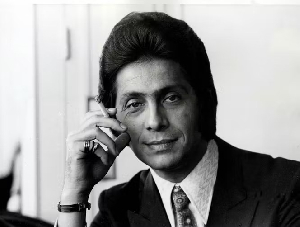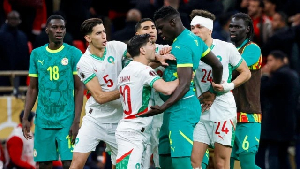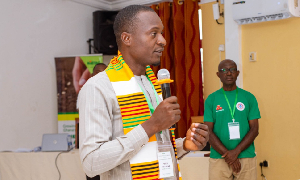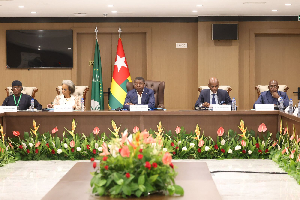Accra, July 23, GNA - This year's celebration of Emancipation Day is just around the corner and Ghanaians are making feverish preparations to celebrate it in grand style. The event is not just a mere replay of history but an occasion that demands sober reflection from Ghanaians and Africans, reminding us of our painful past and struggles and transition to eventual freedom from chattel slavery. The occasion thus has some historical and social significance for all of us even as we revel, dance and expose to the outside world and our brothers and sisters in the Diaspora the richness and glamour of the African culture.
Emancipation began with a rebellion by black militant slaves against slavery at the end of the Eighteenth Century during which colonial powers involved in the trade owned a number of colonies. Though slavery of various forms had been known in the human society for a long time, the kind of slavery under which victims were regarded as property without rights was met with serious opposition. Many therefore hoped that, with the ending of this inhuman trade, it would only be a matter of time for the institution itself to end since the main source of supply had been cut off. A great deal of tension, conflicts and actual wars arose with the campaign that led to final emancipation of slaves.
Final liberation, however came after years of campaigning by committed groups of people in Europe and the new world who for humanitarian, economic, political or moral reasons saw the need to end this abominable practice. Emancipation for the British Caribbean Africans as well as others meant freedom, that is the liberty for people to move freely from place, live on their own, work for themselves and not be at the command of another person. It also meant freedom to enjoy the fruits of one's own labour, work or not to work as they wished, marry whom they liked when they felt it and own property. Emancipation, as the newly freed realised after the initial euphoria, brought with it a new struggle for survival, development and progress. In an attempt to internationalise Emancipation Day, it is important to understand the price of freedom is eternal vigilance, both mentally and physically. Emancipation therefore goes beyond merely freeing oneself from chattel slavery. For, as "Bob Marley put it in one of his liberation songs, "Africans should also emancipate themselves from mental slavery".
There is something positive about Emancipation Day. It has helped Africans and their brothers and sisters in the Diaspora to develop a sense of unity, cooperation and understanding. This should encourage Africans and especially Ghanaians to live above the ordinary, develop mentally, intellectually and spiritually. Indeed, the black man is equally capable of attaining greatness in all kinds of human enterprises. This is what emancipation actually seeks to demonstrate.
Mr Maulana, an African historian who addressed students during a pre-emancipation programme last Saturday, said: "Africans had a genuine, deep scientific civilization before the Europeans came to Africa. The Africans even knew God before the advent of Christianity." He said the black race is the father of civilization and is credited with introducing the alphabets, medicine, mathematics and other inventions.
He therefore advised Ghanaians and the Black race at large not to be ashamed of whom they are, saying: "We can also attain higher heights if we develop ourselves mentally." The youth of today have developed an attitude or better still a kind of mentality that seeks to give greater value to everything that is foreign. Most people like foreign shoes, bags, and virtually even everything that can be identified with overseas that is why many Ghanaian women are bleaching themselves these days, wanting to be white in colour.
In fact, the youth in Ghana now associate themselves with anything foreign. Such mindset inflicts a physiological damage on us because it makes us feel that anything foreign is superior to anything African. It is about time we empowered ourselves mentally and contributed our quota to the development of this nation to make it a safe haven for us all. Emancipating ourselves for mental empowerment means we should be able to work hard to enjoy the fruits of our own labour, have positive attitudes and propel us towards socio-political and economic advancement.
Opinions of Wednesday, 23 July 2003
Columnist: Hannah Asomaning
Emancipation Day
Entertainment













